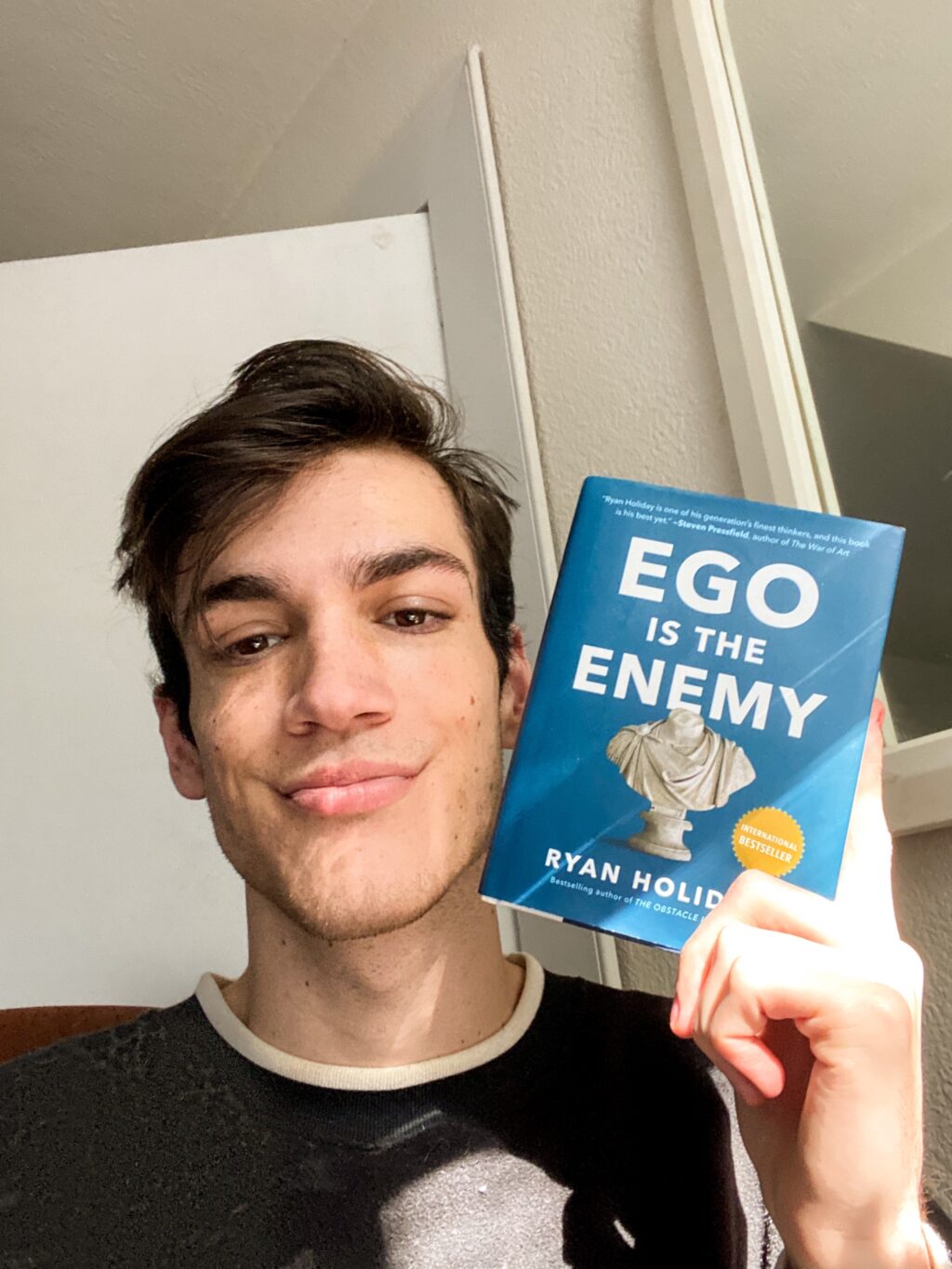“Ego is the Enemy” addresses how to get past the fear of failure
4 min read
oliday discusses how to move past your ego to achieve your goals. Matthew Simmons / The Blue & Gray Press
by MATTHEW SIMMONS
Senior Writer
After years of running in the opposite direction of self-help books, I finally decided to get past my dislike of the genre and give them another try. My welcome back into this world was sparked by “Ego is The Enemy” by Ryan Holiday. Released in 2016, the short title covers what the ego is all about, how it affects us and what we can do to cut down on its destructive behavior.
My distaste for self-help books was not the result of just one unfavorable title, but rather a culmination of many. When thinking about why, the answer became clear: why is this random person telling me how to live my life, and what qualifications do they possess to write a self-help novel to aid others in their interpersonal dilemmas? Tones that reflected know-it-all attitudes and the “it’s this simple” concepts left a poor taste in my mouth.
This is why the beginning of “Ego is The Enemy” caught me by surprise. Holiday includes an author’s note that cuts straight to the point regarding his intentions with what would be found in each chapter of the book. Although highly accomplished, the young writer acknowledges that he does not know everything and has no plan to make it seem like he does. Rather, he describes the book as a result of the desperation he felt for a book like this to be in existence when he was younger. It is a subtle, but necessary acknowledgment that sets the tone for the rest of the short novel.
Spanning just under two hundred pages, the book does not spend too much time on irrelevant
topics. It is broken into three sections: aspire, success and failure, each described as the current state of everyone on earth. Here, he describes the specifics of each and how they impact our daily lives, as well as our relationships with each other.
As hustle culture continues to grow, so does the desperation that many face surrounding their future and what that can entail. Working hard each day to achieve some goal or dream can be exhausting. As a result of this, individuals place even more emphasis on reaching their goals, fearing that they may not achieve them after years of hard work and pressure from both themselves and other exterior forces. Not only has hustle culture grown, but so has the comfortability online users have in sharing details about their lives through social media. Sharing recent accomplishments, small business successes and the overworking aesthetic has created a mirror for others to look into and reflect onto themselves. This is quite the force against eliminating the ego because not only are you working hard to impress yourself but also a community of users online.
Throughout the novel, Holiday recounts the downfall of those who let their ego get the best of them. Alongside this, he highlights moments when people gained control over their ego and reached a level of success beyond their dreams. Rooting within each of these success stories is the drive and focus to do things purposefully. It seems that purpose is the greatest component in combating the ego from taking over. Holiday reminds us that if we have good intentions and are working with purpose rather than aimlessly, we can go beyond what we thought we could do and achieve bigger and better things. He teaches that we must put action to our words and not let them remain on paper.
I think this book came at the perfect time in my life. I feel as though I have been on
autopilot ever since I started my journey with college, with the constant goals of working hard to earn a grade, to be rewarded with a degree and to get a job doing who knows what. Each completed assignment has been an end goal that exists at the other end of a long line. We have been conditioned that receiving good grades and moving to the next objective is the most efficient way to reach the dreams we are all gearing towards. Of course, there is truth to this method, and that’s why it is our most traveled path. Holiday pushes readers to think about how often we do things just because we want to do well and not because there might be a golden ticket at the end of the course.
Although I am still not the biggest fan of self-help books, Holiday produced a great novel regarding the self that I can say I greatly appreciate. Moving forward, I hope to apply some of these practices and more from the book into my daily life, where I will hopefully let my interests and purpose take control before my bitter and conceited ego.











